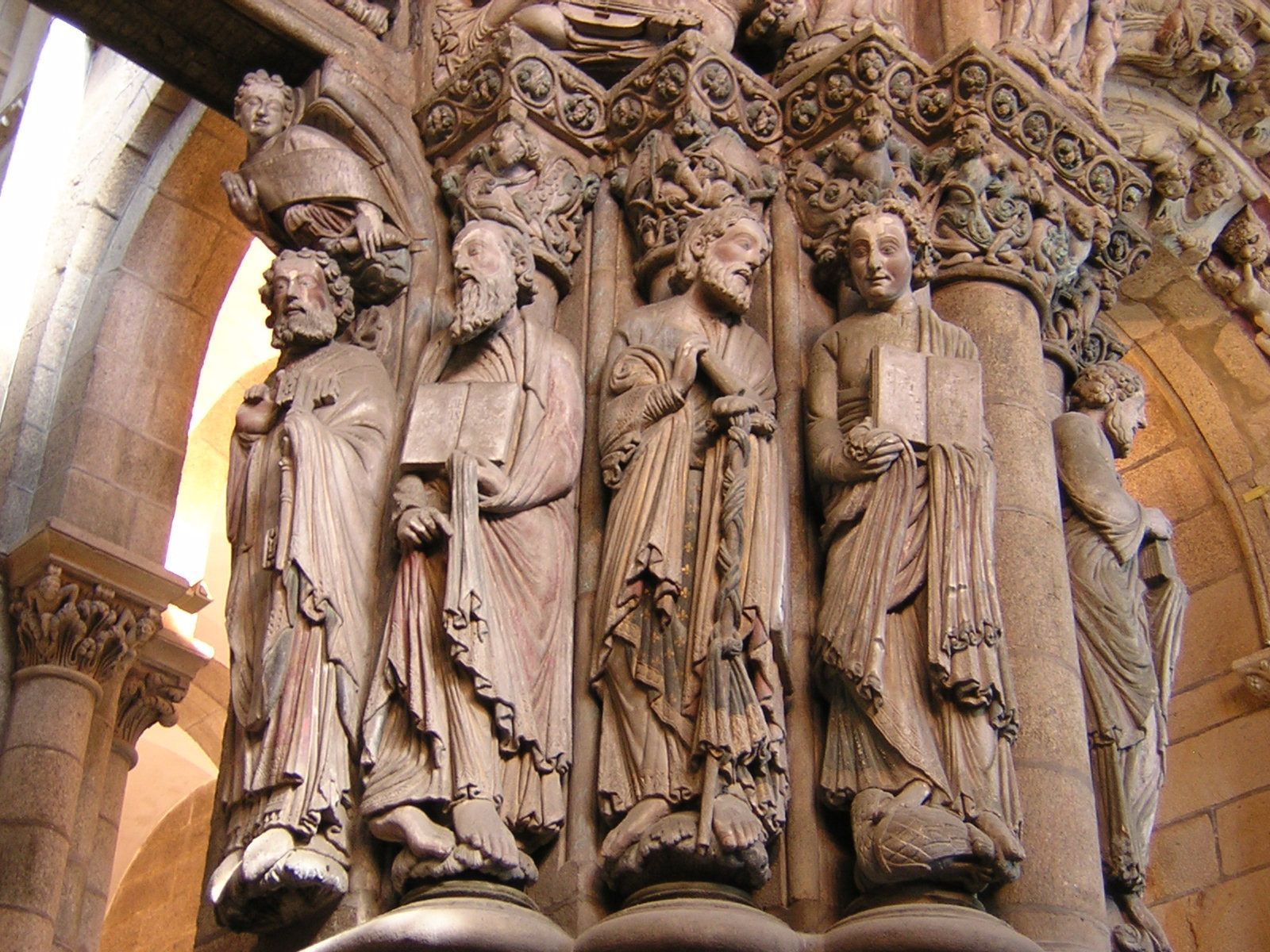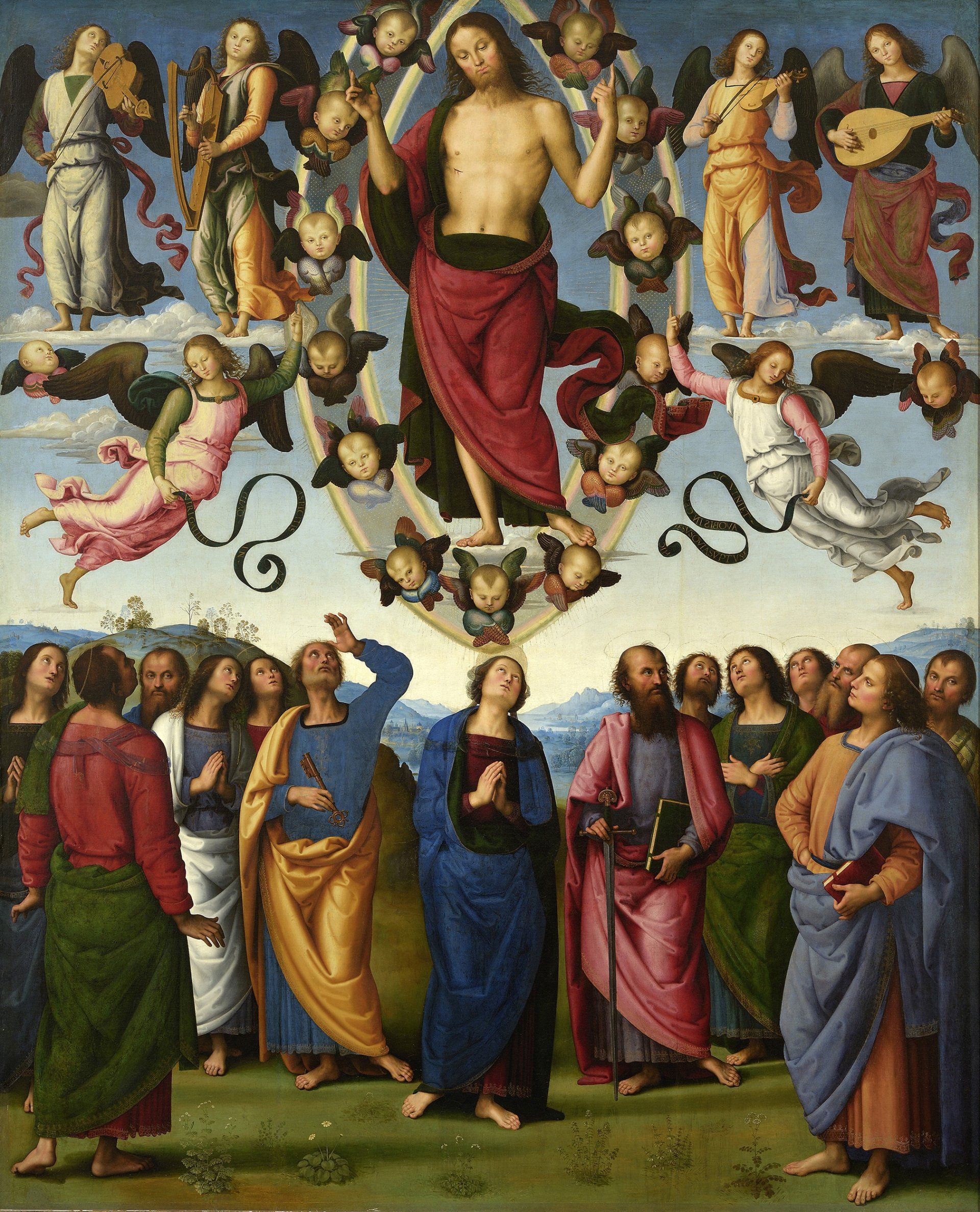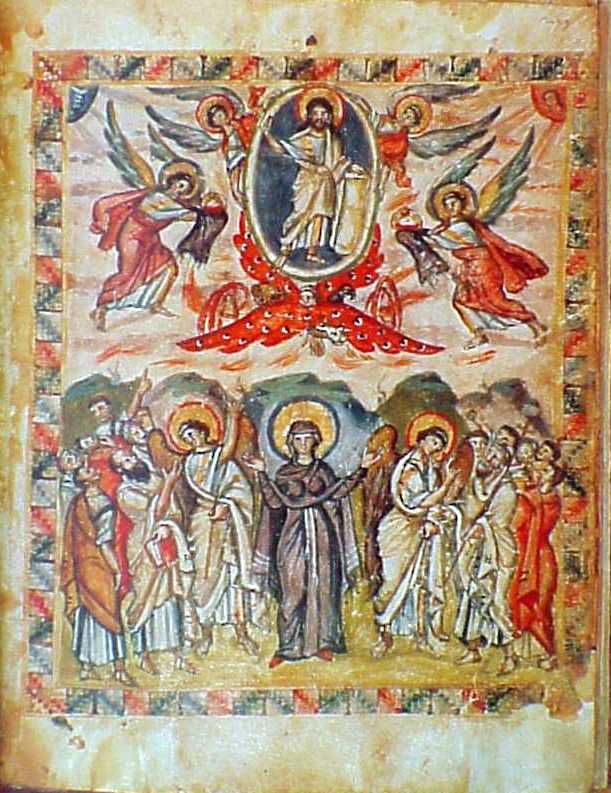Message of Abbot Paul - Ascension Thursday - 9th May 2024
Abbot Paul • May 8, 2024
The Acts of the Apostles takes over the story of the Ascension just where Luke’s Gospel leaves off. “Now as he blessed them, Jesus withdrew from them and was carried up to heaven. They worshipped him and then went back to Jerusalem full of joy; they were continually in the Temple praising God.” But before they return to Jerusalem, the angels ask them why they are standing there looking up into the sky. They tell the disciples that Jesus, whom they have seen ascending into heaven, will come back again just as they have seen him go.
What is the meaning of the Ascension? The Gospel tells us that three things are going to happen as a result. Christ ascends into heaven and yet, (1) “Behold, I am with you until the end of time”, (2) “Not many days from now, you will be baptised with the Holy Spirit”, and (3) “The Son of Man will return on the clouds of heaven”. Although Jesus has ascended to the Father, he is still here with us, in the Church, in the Sacraments, in the Scriptures, and in each one of us. He is with us through the outpouring of the Holy Spirit, the “other Advocate, who will remind you of all that I have told you.” He will return on the Last Day to be with us again. The Ascension is the fulfilment of the prophetic name Emanuel, God-is-with-us.
Human beings think in linear time scales: past, present and future, but with God, who is eternal, there is no past or future, only the present. Eternity has no length and cannot be measured. Eternal life is living fully in the present moment, living in God. The Ascension is a breakthrough, where time enters eternity, just as at the Incarnation eternity entered time.
In the Ascension hymn “Hail the day that sees him rise,” Charles Wesley writes: “Lord, though parted from our sight, far above yon azure height, grant our hearts may thither rise, seeking thee beyond the skies. There we shall with thee remain, partners of thine endless reign; there thy face unclouded see, find our heaven of heavens in thee.” Heaven is not a place: Heaven is a person, Jesus Christ, and eternity is God’s life, which he has graciously shared with us, his children, through the death and resurrection of Jesus.
The Gospel begins with an angel announcing the Incarnation, first to Mary and then to Joseph, and a choir of angels announcing the birth of the Messiah to the shepherds. The Gospel ends with an angel announcing the Resurrection to another Mary, and with Jesus, God’s own Angel, announcing the coming of the Holy Spirit to the Apostles, and with two angels announcing that Jesus will return.
What, then, does the Ascension mean for us? Jesus, Word of God and Son of the Father, who took our human flesh from the Virgin Mary and became Man, thus uniting heaven to earth, God to Man, at his Ascension took into heaven, took unto himself, our human flesh, this frail, sinful body of ours. A part of us is already at the right hand of the Father, transfigured, glorified and eternal.
The Ascension fills us all with joyful hope, because it is, of all the Church’s feasts, the feast of hope, joy and fulfilment, the feast that celebrates both a mission accomplished and a mission just beginning. When all seemed lost, Jesus rose from the dead and just when it looked as though he was leaving us for good, he tells us that he will be with us always, that he will never leave us. He promises us the gift of his own Spirit and he assures us that he will come again in glory and that all will be well, that our heaven of heavens will be truly in him.
To Jesus Christ, our risen and ascended Lord, be all glory, praise and worship in time as in eternity. Amen.












